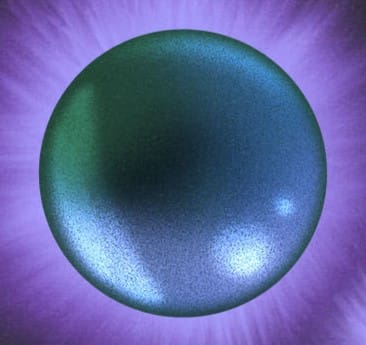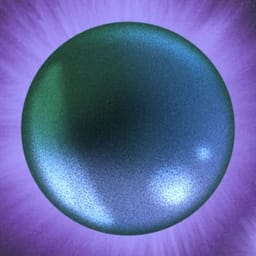Chasing Fridays: Militarie Gun, Spiritual Cramp, Danielle Chelosky Q&A, more
Five reviews spanning punk, sludge-pop, and dreamy electronica. Then, unpacking the 'Female Loneliness Epidemic.'
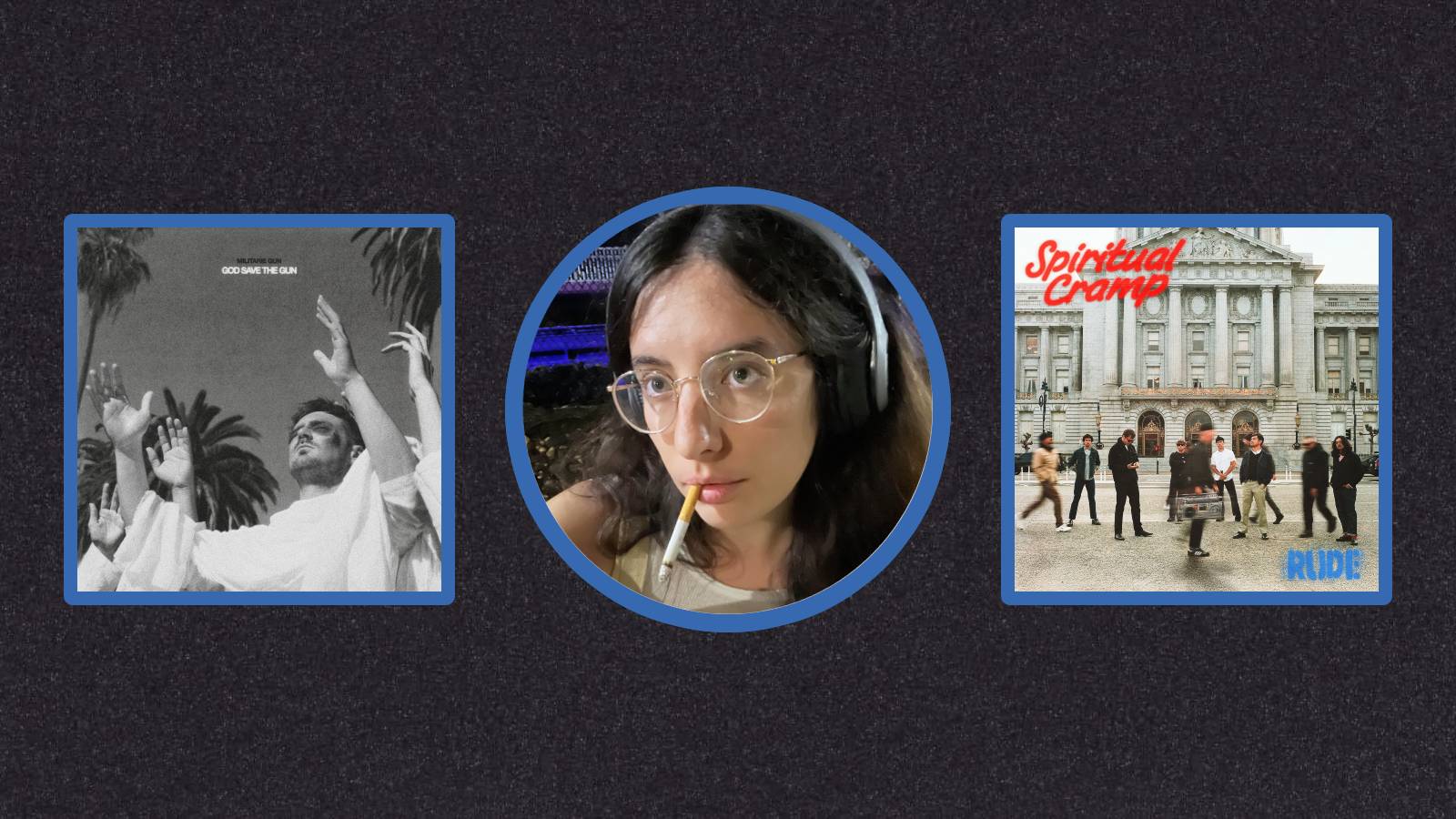
Every couple months I get stuck. I slog through a week where no new music is hitting for me and even my older faves sound unappealing. I recede into politics podcasts and YouTube lectures, and then, like clockwork, something cool pulls me back. Last week, it was that new Bassvictim record and all of the "laptop twee" developments happening around it. Writing about that stuff for last week's newsletter totally relit my spark for discovery, and this week, I listened so much new music that I couldn't possibly fit it all in an issue of Chasing Fridays.
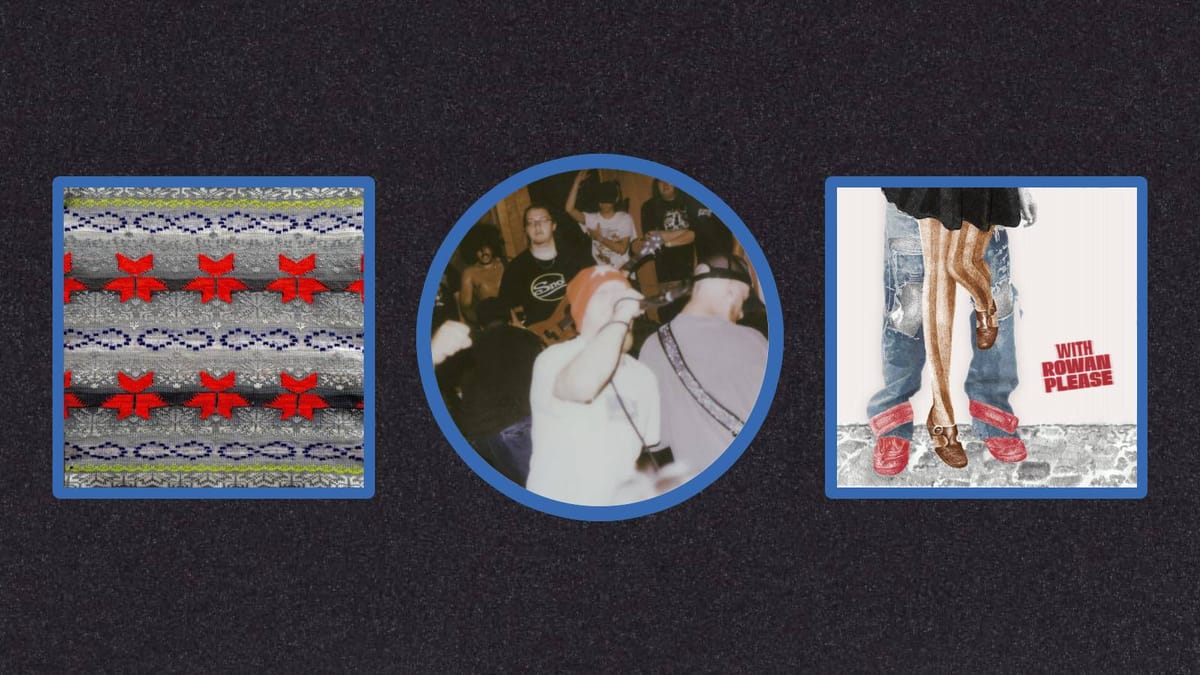
For this dispatch, I tried to strike a balance between covering bands that the average Chasing Sundays reader probably cares about and then putting on (and off) for some more subterranean stuff. I wrote five reviews for five new full-lengths, and then interviewed my friend, writer Danielle Chelosky, for this week's Chasing Down Q&A. Something a little different that I hope to do more of down the line.
Militarie Gun - God Save the Gun
Militarie Gun are a band I've liked since their demo, but I can't pretend that my interest in this group hasn't waned since their 2023 debut, Life Under the Gun. Not for anything the band have done, per se, but moreso because of the way people talk about Militarie Gun. At this point, I'm completely uninterested in the narrative of "hardcore band taking the bold swing to go alt-rock." I'm not enthused by the novelty of an aggressive band refining their melodic chops and playing at slower tempos. Nothing about that trajectory is inherently cool (or even remotely original) in 2025, and that's not why I buy-in to a band like Militarie Gun. I don't care where they came from. I don't care where they think they're going. There's only one thing matters: are the songs good?
With Militarie Gun's 2023 debut, Life Under the Gun, most of the songs were indeed good. As for their new album, God Save the Gun, most of the songs are even better. I'm actually quite pleased by how much I like this record, because I had heard the single "B A D I D E A" earlier this fall and thought that it was terrible. I've always disliked the Militarie Gun songs everyone else loves. For instance, I think "Do It Faster" is one of the most boring songs on Life Under the Gun. I far prefer the ambling, jangly mid-tempo cuts on that record – "Never Fucked Up Once" and "My Friends Are Having a Hard Time" – to the faster post-hardcore anthems.
"B A D I D E A" – a song that was initially written for a Doja Cat placement, and still reeks of Punk Rawk sync licensing desperation – encapsulates everything about Militarie Gun that gives me pause. It's a cheesy chant-along that feels too calculated, too self-consciously Militarie Gun (the obligatory "oo-oo" makes me cringe) to serve this phase in the band's evolution. Fortunately, it's an outlier. The remainder of God Save the Gun sounds exactly as I hoped Militarie Gun would progress after their debut. It's a well-orchestrated rock album that's bright and beefy, yet also tender and revealing. The guitars are crunchier, the hooks are stickier, and Ian Shelton's shoddy voice is by all accounts better than it's ever sounded.
Militarie Gun's five-year arc has been a gradual progression from the barky post-hardcore band they started as to the still barky, though far more sophisticated, alt-rock band they've grown into. I realize why Militarie Gun's evolution has been a step-by-step process, but songs like "Throw Me Away" and "Fill Me With Paint" are how I've always wanted them to sound since I first heard "Big Disappointment." These are giant rock songs with cascading guitars and choruses that are as primed for solitary hum-alongs as they are for friend group scream sessions.
There's still a punk edge to Militarie Gun's sound on these tracks, and a rascally sense of humor in the lyrics ("If I kicked you in the face, I'm sorry / but I would do it again," Shelton sneers in the monstrously fuzzy "Kick") but the band no longer sound afraid to write the pop-rock tracks they've always wanted to. My favorites in that vein are "Daydream" and "Wake up and Smile." The former is a wistful acoustic ballad that channels Elliott Smith in its Beatlesesque elegance and gut-punching candor ("I've been drunk every day for a month / I learned from you and mom," Shelton sings timidly). The latter is an acoustic/electric hybrid that sounds like Militarie Gun's take on Yankee Hotel Foxtrot. It's the inverse of "B A D I D E A": clever, suave, spikey – everything about Militarie Gun that brings me joy.
Spiritual Cramp - RUDE
Spiritual Cramp's 2023 self-titled album is one of the best straight-up rock records of this decade. I waited five years for it to arrive after getting into the band with their 2018 record, Television, and it's still an album that I feel compelled to throw on when I need to satisfy a car-full of friends or motivate myself to sweep my house. It's one of those albums that's so effective at achieving its specific vision — anglophilic garage-rock with an early 2000s NYC sense of ambition – that I don't find myself aching for a follow-up. Everything I want the band to be is captured in that 10-song tracklist, but I'm certainly not mad to hear another LP from the boys in blue denim.
Like many LP3's, RUDE finds Spiritual Cramp refining what comes natural to them while also broadening their scope a bit. They hired bigwig producer John Congleton to make their punk sound more Rock, which isn't an offensive choice for a band like Spiritual Cramp considering their songs have always bulged from their slim packaging. "You've Got My Number," a mid-tempo duet with indie-rock vet Sharon Van Etten, is the most, "oh, they're going for it," song on here, and I actually think it's tasteful and sweet, including the "bah-bah-bah-dadda-dadda" refrain. In "New Religion," they even try their lips at a whistle chorus, another radio-friendly trick that could've come off as hokey if Spiritual Cramp's easygoing demeanor wasn't so conducive to that type of fanfare.
These slightly more centrist moves don't come at the expense of Spiritual Cramp's signature ruckus. "Go Back Home," "At My Funeral," and "I Hate the Way I Look" are bullseye punk burners, as bracing and straightforwardly gratifying as the band's greatest hits. It's not the risks or the re-treads that drag this record down, but the more anonymous cuts ("Crazy," "Automatic," "Young Offenders," the latter two being singles for some reason) where Michael Bingham's voice sounds flattened and sleepy. The urgency definitely sags during RUDE's side-B, where there's a cluster of songs that don't sound particularly novel or familiar, just bland. However, none of those cuts are weak enough to drag the whole record down with it, and RUDE ultimately wins out as a worthy successor to Spiritual Cramp. Not better, but pretty damn good.
Taraneh - Unobsession
One of my main beats at Chasing Sundays is cataloguing where artists live in relation to one another and how once-separate subcultures have been folding together in the 2020s. I had my work cut for me for Taraneh. The NYC singer (a former investigative reporter for USA Today and NBC News) moves in the same fashionable pop scene as The Hellp and Cooper B. Handy, and has collaborated with cult-adored pop experimentalist Evanora Unlimited (a.k.a. Marjorie S.C. Sinclair). Those associations aren't far-fetched considering Taraneh's 2023 album, A Fleeting Feeling, is a bundle of rickety, mystical dream-pop – the type of music that Spotify says fans of untitled (halo) and Double Virgo also like. The thing is, Taraneh doesn't sound like that anymore.
Her 2024 album, New Age Prayer, reupholstered her bummed-out indie whimpers with girthy metal guitars and malicious industrial breakbeats. It was heavy and confrontational enough to land her a tour opening for the hardcore band Candy. Her latest record, Unobsession, is slightly less heavy yet just as dark, a brooding bastard child of Acid Bath's stylized sludge, Garbage's chic gloom, and Hole's vengeful grunge. The temperament is bruised, the atmosphere shadowy, the feeling cold. At times, the dank, muddy production hampers Taraneh's proclivity for steely hooks that glimmer like vampire fangs in the moonlight. On the other hand, I like that Taraneh functions as a metropolitan cryptid, feasting on the flash and glamour of the coastal pop scene and then slithering back down to the sewers before sunlight arrives.
Jouska - How Did I Wind Up Here?
Jouska, not to be confused with the defunct Albany band Jouska, is a Norwegian electronica artist who put out a record in 2023 that I liked quite a bit. At the time, Jouska's feathery, low-lit dream-pop felt like it was occupying its own lane, but with the rise of cloud-rockers like Fine and whispery pop artists like Oklou in the intervening years, her new album How Did I Wind Up Here? arrives in good company. Many of the songs on this album indeed sound like Oklou's choke enough – arcane club pop with an underwater stillness – except Jouska is more texturally murky, like Grouper without the stardust granularity. Occasionally, she'll even pull out an acoustic guitar and deliver a spine-tinglingly gorgeous dream-folk song like "Season of Dread." Or, she'll let the breakbeats crescendo unexpectedly like a flock of doves making an abrupt exit ("I Let It Happen"). In both modes, Jouska's precision has me rapt.
Tiffi M - Heartstrings
I first heard of Tiffi M earlier this year when she appeared on Horse Vision's great February single, "Chemicals." At the time, the Stockholm singer only had three songs to her name, but since then, she's made all the right moves (collaborating with A Good Year and Quiet Light, and contributing to the crucial Satellite compilation) to become a notable drifter in the cloud-rock troposphere. Heartstrings, Tiffi M's debut album released earlier this month via Inadvertent.Index, collects all six singles she's released since November 2024 and then tacks on four new ones. Every week, it seems like another hazy, digitally tweaked indie record from Copenhagen, Stockholm, or London is released on labels like Escho, AD93, and YEAR0001. Tiffi M sits squarely in that exciting milieu, but Heartstrings doesn't help her stand out.
Tiffi M checks all the cloud-rock boxes: the sensual purr sprinkled with auto-tune, the bleary synth ambience hanging over clacking drum breaks, the sauna-like production that obscures all of her lyrics and douses the whole record in a vaguely mysterious plume of steam. All of that texture would be more effective if Heartstrings provided something to tug with. Tiff M doesn't have the pop ear of Horse Vision or Snuggle, the atmospheric breadth of Raisa K or Joanne Robertson, the personality of Fine or Yorck Street, and certainly not the radical ideas of ML Buch or Astrid Sonne. A couple of these tracks are pleasant enough, but the bulk of Heartstrings is frictionless and boring. My advice to any artist planning to ascend to cloud-rock altitudes: be bold. The mill is already running.
-----------------------------------------------------------------------------------------
feeo - Goodness
Sudan Archives - The BPM
Mitsubishi Suicide - "Song for Ciara H"
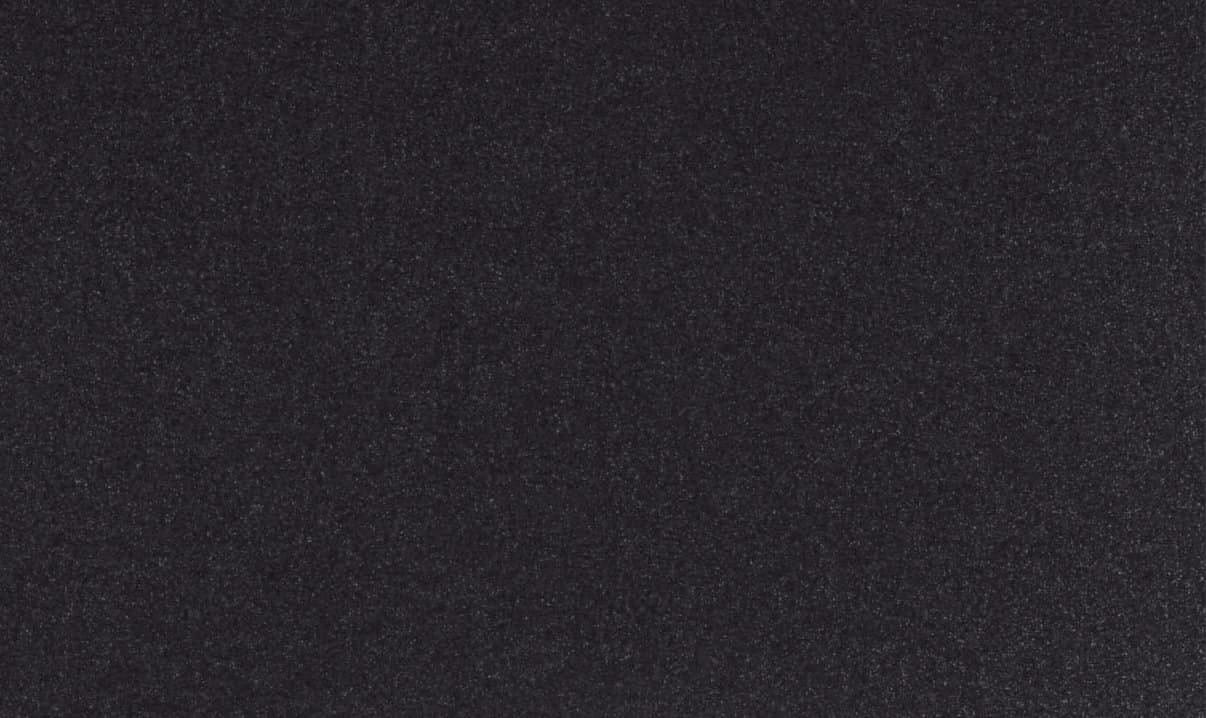
Chasing Down
DANIELLE CHELOSKY
of
"Female Loneliness Epidemic," "Pregaming Grief," Stereogum
Chasing Down is a Q&A series with artists, friends, and others of good taste.
The above tagline for Chasing Down notes that it's a Q&A series with artists and friends. However, up until now, I've only ever interviewed artists I admire for my newsletter. Today, I'm interviewing a friend. Danielle Chelosky is a staffer at Stereogum and a fiction writer who's published several books including "Pregaming Grief," "Baby Bruise," and her latest collection of stories, "Female Loneliness Epidemic" (available now).

Chelosky writes about wounded figures searching for connection and meaning, often in the lowest of places. Her writing is funny and visceral, filled with vivid scenes of sex and alcoholism, violence and depression, cheap thrills and terminal boredom. And also SoundCloud rappers. Some of the stories in "Female Loneliness Epidemic" remind me of Girls episodes. Others like surreal daydreams, deeply felt yet also difficult to pinpoint exactly what they mean, if anything. Reading through all 21 of these tales, each only a page or three in length, induces a sort of emotional whiplash. Some left me feeling nauseous with melancholy, and others had me shaking my head while giggling at the absurdity. At no point did I feel like putting the book down.
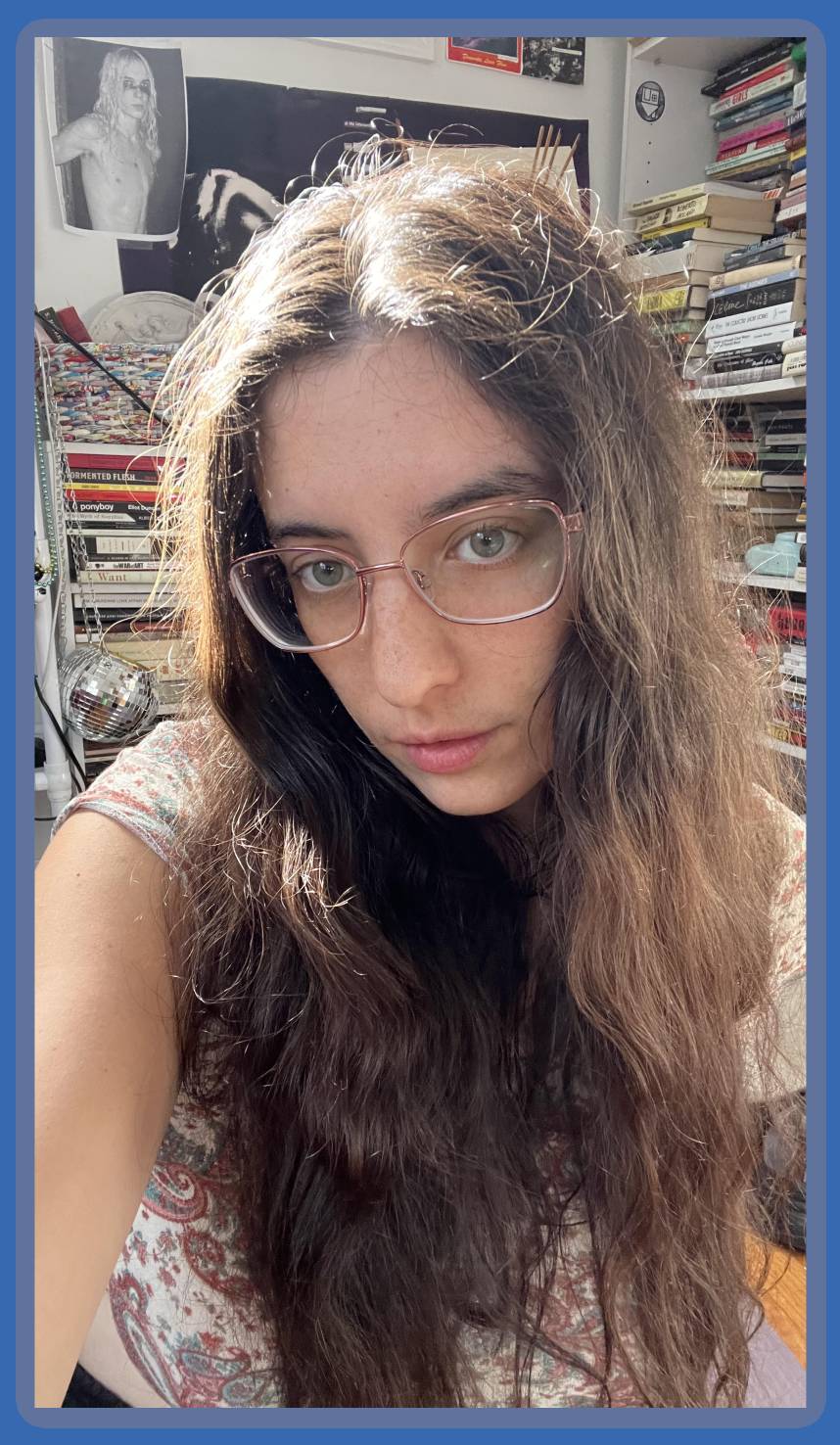
For this week's Chasing Down Q&A, I asked Chelosky about the so-called "female loneliness epidemic," her fascination with rock bottom, dark jokes, 2hollis, and more. Read the full interview below.
A story like "Bad Girl" ends with just a total unraveling of the narrator's life. She's evicted from her apartment and strapped to a radiator in her abuser's house. I think cataclysmic disintegrations of a character's life is a running theme in your work. What intrigues you about someone losing it all?
What comes to mind is this quote from MJ Lenderman from an interview with The Guardian: “When you’re observing someone at their lowest, certain truths come out.” There’s ultimate vulnerability in rock bottom. There’s also something alluring in it; it’s important to face what we fear the most to be able to recognize that it’s actually not all that bad. A lot of my favorite writing is about self-annihilation. When you’re depressed, there’s an instinct to make it worse yourself to have agency over your own pain.
My Bataille epigraph also explains this urge — “Anyone with the strength and the means is continually spending and endangering himself.” Some people wonder why my writing is about self-destruction but it just happens naturally because I think self-destruction is innate (Freud called this the death drive). I think this is especially true of artists. I don’t think it’s necessarily romanticizing or glamorizing self-destruction either; I think it’s just exploring repressed human impulses, which is what art is for. Sometimes I use writing to imagine the worst version of myself possible.
I think people could read your work and say that it's largely about sex and substance abuse, but I think this book is really about searching for meaning and connection -- of battling loneliness. Do you actually think there's a "female loneliness epidemic" and if so, how does contemporary female loneliness in your experience differ from "male loneliness"?
I think you can’t have a male loneliness epidemic without a female loneliness epidemic. These men who are lonely take it out on women. Everyone’s retreating into themselves. Of course the difference is that women often have healthier friendships with each other than men do; women can talk about anything with each other, whereas men can find it hard to communicate their emotions with their male friends, which is sad, but ultimately a result of the patriarchy.
I think female loneliness right now looks like this: swiping on dating apps and hating yourself the entire time, having terrible conversations with strangers and screenshotting it and posting it on Twitter, amplifying the gender war because we’re all so guarded and ready for someone to attack us so we have to attack first. It also looks like this: saying “I hate men” constantly while feeling desperate for a boyfriend, getting incel content pushed onto your feed and wondering when this disturbing ideology became normalized.
